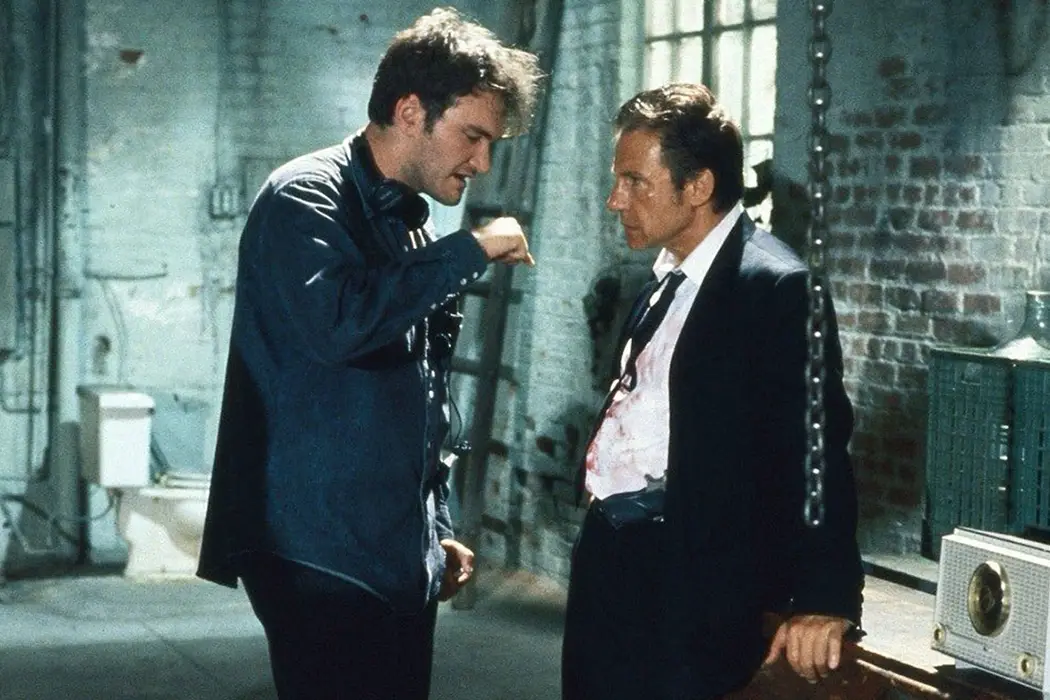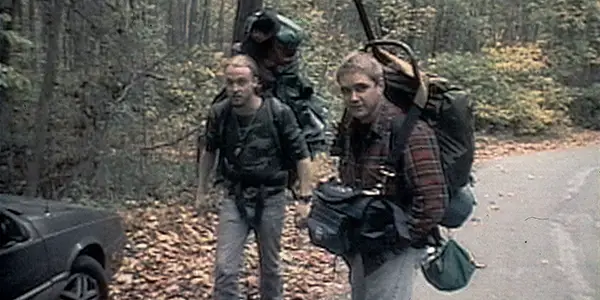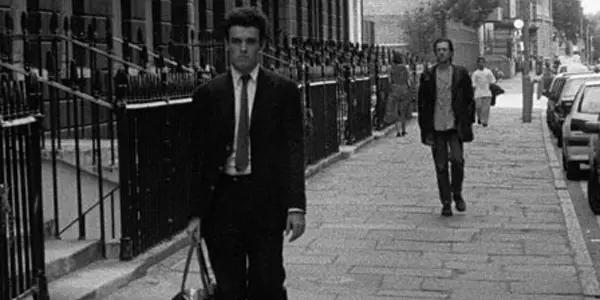So You Want To Make A Movie… Now What?

Phoebe Lewis is, as you'd expect, very into films. She…
Sundance 2019 has come and gone, and with it the debuts of many films we look forward to hearing more about over the coming year. Every January it’s exciting to greet new faces on the circuit – and for those attending the festival, it can be thrilling to imagine that, down the road, you might be able to say that you were in the audience, in the very room , the day a filmmaker’s career took off.
While many of these new directors hail from film school, more than you’d think come from non-traditional backgrounds. In fact, many of our most beloved filmmakers didn’t even attend film school – here’s looking at you, M. Night Shyamalan and Quentin Tarantino – and in many cases, an education or previous career not in film inform their work in ways that now seem integral to their success.
For instance, did you know that Jed Mercurio was a doctor in Birmingham before penning the hugely popular The Bodyguard script? Or that Ava DeVurnay didn’t pick up a camera until the age 32? How about the fact that Wes Anderson, whose distinct style made films like Rushmore and The Royal Tenenbaums cinematic landmarks, studied philosophy at university?
All this is to say, if you’ve ever sat in a film talkback and wondered “Hey! I could do that…wait, could I do that?” – the answer is a resounding yes. Your first film might not make waves – then again, it could – but what matters most is that you do it. Christopher Nolan said it best:
“The most important thing is to pick up a camera and make a film. Even if you don’t have money, get your friends, even if it is the worst piece of crap, it still will have your name saying ‘Directed by’ … and for everything after that you are a director.”
That being said, it’s always helpful to have a couple tips in your back pocket as you set off on this exciting journey. While every project is its own beast, here are some generally useful resources for launching your very first film.
Script
Celtx is a great option, especially if you’re still familiarizing yourself with screenwriting structure and don’t want to spring for the pricier Final Draft (which can run upwards of $250). You can pay just for screenwriting resources – $20/month – or select a package more geared towards video production, at $30/month. Take your time exploring the site and seeing which set-ups best suit your project – the screenwriting package includes storyboarding and index cards, which is a great way to begin to visualize your story.
If you’ve got some ideas but want to flesh them out more, there are some great brainstorming resources online. Work through plot points on MindMUP , or explore some prompts for fresh material. Of course, nothing beats reading a great book (short stories are a great way to consider short structure) or revisiting a classic film – for ideas, explore more of Film Inquiry!
Budget
This part of t he process isn’t very sexy, and it definitely can be a wake-up call. It can be difficult to know where to begin with budgeting your process, so I recommend writing down everything you plan on doing to make the film – road trips, lunch breaks and camera rentals alike – and taking a hard look at what you need versus what you can work around. Can you carpool with your crew? Can your crew crash on your floor? Do you even need a crew? Can you film somewhere for free? Do you get a discount on sound equipment through your local community college?

Drawing up a budget offers a great opportunity to consider where you can afford to get creative – and helps you determine which elements of your film you absolutely cannot budge on.
StudioBinder offers a helpful budgeting breakdown , and you can download their free film budget template here . While there is plenty of budgeting software you can purchase – Movie Magic Budgeting is one of them – if this is your first project, simple and cheap is often the best way to go.
Grants
You need money to make a movie! Unless you plan to fund it out of pocket, or have a barely existent budget, you will want to at least consider grants. Film Independent offers many grants and collaborations , and Film Daily has an excellent film grant directory . No Film School releases a biannual list of that year’s grants , as does Kit Split.

If you’re making a film locally, consider reaching out to your state film board for resources – there might be a local filmmaker grant that fits your project perfectly. Don’t be afraid to think creatively here – you never know who might want to fund your project!
Check out Raindance’s Top 10 No Budget Film s for a healthy dose of inspiration.
Crew
If you plan on hiring anyone to work with you, StaffMeUp is a great site that is host to a massive job-board frequented by many in the business. Whether you’re looking for producing support or a DP, this is a great place to start. It goes without saying that if you can’t pay people, make that clear in your post – and if you can compensate people for their time, do so!
It’s also worth exploring film and entertainment job boards local to your area. If there’s a film school nearby, maybe you can arrange an internship program through the school granting students academic credit for helping on set. If there’s a film class program in your town, perhaps you can put up a job posting in the building. Don’t overlook community resources!
Equipment
So, you have a script, a team and a budget. If you don’t have a camera , now would be a good time to decide which you’ll use.
Kit Split is a fantastic resource – think of it as an AirBnB for indie filmmakers. If you’re in a major market – DC, NYC and LA are among the most heavily represented on the site – you’ll have no trouble finding many different kinds of cameras, lenses, audio equipment and other film tools for rent. Filmmakers list their equipment on the site for a fee, and the renter handles pick-up and drop-off. You can rent down to the hour, so if you only need to shoot from 12-3p, you can generally rent for that specific window of time.
If you’re filming in a more remote area, consider LensRental – I used this for a recent project and was pleased with my experience. You can rent a camera up to only one day in advance and it’ll be shipped straight to you, with rentals extending to over a week. After filming, you simply box up the camera and ship it back, easy peasy. This is especially great if you will be traveling around while filming, because you can ship the camera back from anywhere.
While it’s exciting to hold a camera in your hands and consider all the exciting things that lay ahead for your film, don’t forget audio ! It’s just as important as your film’s visual elements, and it’s quite easy to accomplish great sound. LensRental and KipSplit both have audio equipment for rent, so you can order a camera, shotgun and lavalier as a package and hey presto, you’re ready to rumble.
If you’re stumped on which camera or lens to use, a fun way to familiarize yourself is to research what equipment was used for films you’ve already seen and admire. Indiewire puts out a fascinating list of the cameras used for each year’s Sundance breakouts – read the list, see the films, and consider which best suits your project. Learn About Film also has a solid outline of all film equipment to consider .
One final tip: see if you can hire a photographer – or bring along a friend – to capture the shooting process. It can be very useful to have documentation of the process, especially if you decide to submit your film to festivals… but that’s another article entirely.
Putting it Together
Once you’ve got your footage, you’ll need to assemble your cut. To make your first movie*, you’ll need editing software; there are many great editing programs from Adobe, DaVinci and Apple. They range in difficulty to use – some require more training to use than others, although plenty of video tutorials are available to get you going. You’ll need to cut and color grade your video, add your audio, music, effects – all that and more to take it from rough to final cut.
Believe you can do it
So, your camera is ready, your shotgun mic is prepped and your actors are rehearsing their lines. No matter your preparation process, at the end of the day this is your film and your vision – so go get ‘em! No one sees the world quite like you do, and that is what makes you a force to be reckoned with. Good luck!
Do you have any stories about your first time directing? Do you have any other recommendations for those starting out? Share them below!
[*] sponsored linkDoes content like this matter to you?
Become a Member and support film journalism. Unlock access to all of Film Inquiry`s great articles. Join a community of like-minded readers who are passionate about cinema - get access to our private members Network, give back to independent filmmakers, and more.
Phoebe Lewis is, as you'd expect, very into films. She was, as you might not expect, a rugby player in college.











